BuildLouder - Advocacy work in Costa Rica
At the beginning of 2011, Twin Cities Habitat for Humanity led a BuildLouder trip to Costa Rica. Not only did the group help build a Habitat home,...
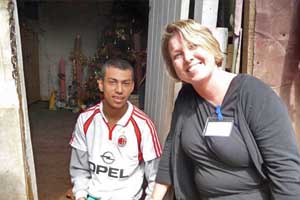
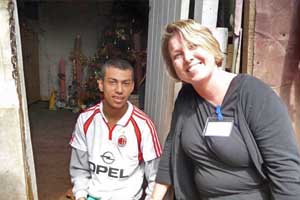 Our group gathered early this morning to begin a journey of learning. We boarded the bus that took us to the informal settlement of Guarari in Costa Rica’s Heredia Provence. When we arrived we were greeted by a group of community members who represent the 1700 families living there. They filled a community center that also doubled as the Pentecostal Church.
Our group gathered early this morning to begin a journey of learning. We boarded the bus that took us to the informal settlement of Guarari in Costa Rica’s Heredia Provence. When we arrived we were greeted by a group of community members who represent the 1700 families living there. They filled a community center that also doubled as the Pentecostal Church.
We sat around a table with the community members who told us about their wretched living conditions (i.e. no sewage system and unhealthy living quarters) and the promises they had received from the government, which remained unfulfilled. Perhaps what struck us the most is that even though their situation is beyond what we could ever imagine ourselves living in, they were proud and they were full of hope. The people of this community are poor, because the system is such that it is nearly impossible to navigate and lift them out of this extreme poverty.
We learned that 80% of the residents were immigrants from Nicaragua who had fled even poorer conditions in hopes for a better life of opportunity and security. Instead, they found themselves stuck in a system of unfulfilled promises, poor salaries and poor living conditions. The two greatest issues we learned while touring the area is that there is a lack of secure land tenure along and a massive migration to the urban area.
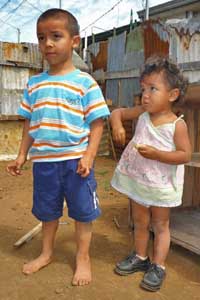 The lack of secure tenure means that there is no right to the land that the people are living on. In Costa Rica the cost of land is incredibly high, even by US standards, so settlers, immigrants and poor people are unable to afford the land. The government has been building homes known as “the projects” on the same area that the informal settlement exists, but even still the inhabitants of these government projects have no rights to the land. This means that if the “owner” of the home passes away, the family will find itself evicted from the home.
The lack of secure tenure means that there is no right to the land that the people are living on. In Costa Rica the cost of land is incredibly high, even by US standards, so settlers, immigrants and poor people are unable to afford the land. The government has been building homes known as “the projects” on the same area that the informal settlement exists, but even still the inhabitants of these government projects have no rights to the land. This means that if the “owner” of the home passes away, the family will find itself evicted from the home.
The issue of increasing urbanization is also a very difficult one. Large numbers of people are moving to the city areas to find work, and have access to jobs, schools and medical facilities. These informal settlements are becoming more and more crowded, and the area simply cannot sustain a population of this size. Resources become scarce, crime rates rise, and health conditions quickly deteriorate
The group discussed what we saw during our evening reflection time, and we were struck by how the people we met, who were living in grave situations, were still filled with hope and dignity. They know that they deserve to have a decent, dignified home and that they need to do something about their situation. They simply need some assistance to leverage assets to get through the red tape to continue to formalize there settlement. We each felt that we could learn from the people of Guarari, and appreciate what we have, and yet not accept these conditions. They have moved us to advocate for change.
Trista Matascastillo,
Team Leader, Community Relations Senior Associate
Your gift unlocks bright futures! Donate now to create, preserve, and promote affordable homeownership in the Twin Cities.
At the beginning of 2011, Twin Cities Habitat for Humanity led a BuildLouder trip to Costa Rica. Not only did the group help build a Habitat home,...
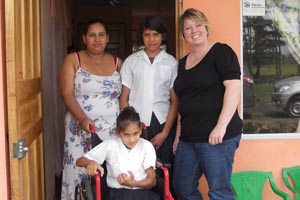
To prepare for our first ever BuildLouder trip at Twin Cities Habitat for Humanity and our inaugural trip to one of our tithing countries, I have...
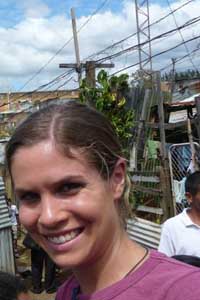
Our Habitat BuildLouder group had another very accomplished day. This is our third day on our trip and I already feel as though my trip as been worth...